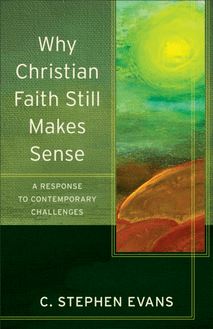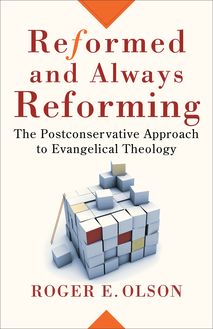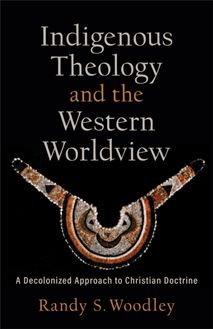-
 Univers
Univers
-
 Ebooks
Ebooks
-
 Livres audio
Livres audio
-
 Presse
Presse
-
 Podcasts
Podcasts
-
 BD
BD
-
 Documents
Documents
-
- Cours
- Révisions
- Ressources pédagogiques
- Sciences de l’éducation
- Manuels scolaires
- Langues
- Travaux de classe
- Annales de BEP
- Etudes supérieures
- Maternelle et primaire
- Fiches de lecture
- Orientation scolaire
- Méthodologie
- Corrigés de devoir
- Annales d’examens et concours
- Annales du bac
- Annales du brevet
- Rapports de stage
La lecture à portée de main
Finally Feminist (Acadia Studies in Bible and Theology) , livre ebook
85
pages
English
Ebooks
2005
Écrit par
Jr. Stackhouse John G.
Publié par
Baker Publishing Group
Vous pourrez modifier la taille du texte de cet ouvrage
Obtenez un accès à la bibliothèque pour le consulter en ligne En savoir plus
Découvre YouScribe en t'inscrivant gratuitement
Découvre YouScribe en t'inscrivant gratuitement
85
pages
English
Ebook
2005
Vous pourrez modifier la taille du texte de cet ouvrage
Obtenez un accès à la bibliothèque pour le consulter en ligne En savoir plus
Publié par
Date de parution
01 décembre 2005
Nombre de lectures
0
EAN13
9781441205919
Langue
English
Publié par
Date de parution
01 décembre 2005
Nombre de lectures
0
EAN13
9781441205919
Langue
English
Acadia Studies in Bible and Theology
Craig A. Evans and Lee Martin McDonald, General Editors
T he last two decades have witnessed dramatic developments in biblical and theological study. Full-time academics can scarcely keep up with fresh discoveries, recently published primary texts, ongoing archaeological work, new exegetical proposals, experiments in methods and hermeneutics, and innovative theological syntheses. For students and nonspecialists, these developments are confusing and daunting. What has been needed is a series of succinct studies that assess these issues and present their findings in a way that students, pastors, laity, and nonspecialists will find accessible and rewarding. Acadia Studies in Bible and Theology, sponsored by Acadia Divinity College in Wolfville, Nova Scotia, and in conjunction with the college’s Hayward Lectureship, constitutes such a series.
The Hayward Lectureship has brought to Acadia many distinguished scholars of Bible and theology, such as Sir Robin Barbour, John Bright, Leander Keck, Helmut Koester, Richard Longenecker, Martin Marty, Jaroslav Pelikan, Ian Rennie, James Sanders, and Eduard Schweizer. The Acadia Studies in Bible and Theology series reflects this rich heritage.
These studies are designed to guide readers through the ever more complicated maze of critical, interpretative, and theological discussion taking place today. But these studies are not introductory in nature; nor are they mere surveys. Authored by leading authorities in the field, the Acadia Studies in Bible and Theology series offers critical assessments of the major issues that the church faces in the twenty-first century. Readers will gain the requisite orientation and fresh understanding of the important issues that will enable them to take part meaningfully in discussion and debate.
© 2005 by John G. Stackhouse, Jr.
Published by Baker Academic a division of Baker Publishing Group P.O. Box 6287, Grand Rapids, MI 49516-6287 www.bakeracademic.com
Ebook edition created 2012
All rights reserved. No part of this publication may be reproduced, stored in a retrieval system, or transmitted in any form or by any means electronic, mechanical, photocopying, recording, or otherwise without the prior written permission of the publisher and copyright owners. The only exception is brief quotations in printed reviews.
eISBN 978-1-4412-0591-9
Library of Congress Cataloging-in-Publication Data is on file at the Library of Congress, Washington, D.C.
Scripture quotations are from the New Revised Standard Version of the Bible, copyright 1989, Division of Christian Education of the National Council of the Churches of Christ in the United States of America. Used by permission. All rights reserved.
“Despite its title, readers should not come to Finally Feminist with expectations of any final, watertight answer to the gender debate. A practical theologian, Stackhouse considers both complementarian and egalitarian views of women’s roles and comes up with a paradigm that is evenhanded, orthodox, contemporary, and temporary. That is, he uses historical and eschatological lenses to look to both the past and the future to form a realistic model for Christian men and women in the present.”
Luci Shaw, writer in residence, Regent College; author of The Crime of Living Cautiously
“Changing one’s mind about the gender question often requires a dramatic paradigm shift, a new model for thinking about things. Unveiling key moments within his own change of mind, Stackhouse calls the Christian community to think about and rethink the way we understand biblical texts about gender, especially when people on both sides of the debate, given a certain selectivity of texts, can happily exegete their way to either egalitarian or patriarchal conclusions. The book’s proposed paradigm of ‘double meaning’ and ‘holy pragmatism’ within Scripture holds implications and challenges for both sides to ponder. This is a powerful and personal book, well worth the reading. Let us listen carefully, and let the community discussion continue.”
William J. Webb, author of Slaves, Women, and Homosexuals
“This book invites both sides of the gender roles debate to the table afresh. I like that no one is particularly at ease here and no one’s view is accepted without challenge. Stackhouse suggests that this discomfort might be worthwhile for everyone. As we all grapple with how to be ourselves in a complex world, this book offers important insights and reflections to both men and women and to both conservatives and liberals.”
Allyson Jule, senior lecturer in education, University of Glamorgan
To Aunt Donna-Jean, Aunt Jan, Aunt Val, and Kari
Contents
Cover
Title Page
Copyright Page
Endorsements
Dedication
Preface
1 Toward a New Paradigm
2 The Paradigm
3 Responses to Arguments
Appendix A: How Not to Decide about Gender
Appendix B: A Woman’s Place Is in . . . Theology?
Subject Index
Scripture Index
Notes
Preface
A ren’t we “done” with gender? Haven’t all the relevant issues been raised, all the texts scrutinized, all the alternatives arrayed?
Christian discussion regarding the identity and roles of men and women typically has been conducted between two sorts of Christians: those who side with the tradition of patriarchy, in one form or another, and those who identify with some sort of feminism. Since the middle of the nineteenth century, the voices of preachers, theologians, exegetes, activists, missionaries, and, latterly, social scientists have contributed to this vexed debate. These voices have been both male and female. Moreover, and perhaps surprisingly to some, male and female voices have been heard on both sides: Not all patriarchalists have been male, nor have all feminists been women. Furthermore, neither side has demonstrated a corner on piety, orthodoxy, fidelity, or charity. Nor can only one side command the fields of Scripture, theology, tradition, social science, and everyday experience. It seems abundantly evident that there are very good reasons to hold to either side of this debate. So is there anything left to say?
I want to address this issue as one who enjoys friends on both sides of this controversy. One of the ways in which this book perhaps offers something unusual in this discussion stems from my disposition to believe that both sides are right, for it seems unlikely to me that the intelligent and godly people who are found on one side or the other are totally, or even mostly, mistaken. (This point is rarely acknowledged by the polemicists, but many people in the pews who often feel torn in their allegiances to friends on both sides see it readily enough.) If a way can be found to hear each side fairly, to acknowledge not only the personal integrity of the participants but also the spiritual and intellectual integrity of their positions, then that way deserves a good look. It is that way I have chosen to take.
I have concluded also, however, that neither side’s characteristic line of argumentation is entirely right. Hence, I here set forth a way of looking at gender that can affirm much, even most, of what both sides typically say and yet does so in what I hope is a single, coherent paradigm that amounts finally to a Christian feminism.
I do not claim uniqueness for this approach. In fact, I am rather leery of all claims of intellectual uniqueness, not only because they are usually impossible to prove (how can you know that no one has anticipated your ideas?) but also because they are suspiciously self-aggrandizing (why would God have vouchsafed such insights specially to you?). But I write this book because I have not seen quite this arrangement of ideas before. And it is this arrangement and not the constituent particular arguments, most of which I have gratefully gathered from others that has helped me most in thinking about this debate and is therefore this book’s central contribution to that debate. [1]
This volume was occasioned by invitations in 2004 to give lectures at two North American evangelical schools: the Visiting Christian Scholar Lectures at Taylor University in Indiana and the Hayward Lectures at Acadia Divinity College in Nova Scotia. Because I continue to worship and serve within evangelical Protestantism, I thought it well to speak to what is indeed a live and contentious issue in those ranks, however otiose it may seem in others. Moreover, it is clear that gender controversies continue to roil not only evangelical communities but also many communities elsewhere within Protestant Christianity, as well as in Roman Catholic and Eastern Orthodox circles in North America and around the globe.
In the limited time such lectureships allow, and now in this small book, I have focused on the questions that are most controverted in most of these groups: the status and roles of women and men in church and family. There is, of course, much more to be said about gender. Kendall Cox lists other important items still on the larger agenda:
the sexualization of youth in advertisement; the impact of the “single breadwinner” economic system on middle-class men; dualism, sexual repression, and disembodied rationality; sexual objectification in the media; the correlation between child sexual abuse and authoritarianism in Christian households; the treatment of singles as second-class Christians; female complicity in their own subordination; the correlation between male pornography use and sexually violent attitudes toward women; the devaluing of emotion and relationship in masculine conditioning; suppression of stereotypically “feminine” attributes in men and stereotypically “masculine” attributes in women; rampant misandry and misogyny, etc. [2]
I trust, then, that this volume will contribute at least a little to the opening up of a wider range of conversations among evangelicals and also among the many other Christians who share these interests. In particular, I hope it will ass

Ebooks
Why Christian Faith Still Makes Sense (Acadia Studies in Bible and Theology)
Stephen Evans C.

Ebooks
Philosophie
Why Christian Faith Still Makes Sense (Acadia Studies in Bible and Theology)
Stephen Evans C.
82 pages
English

Ebooks
Finally Feminist (Acadia Studies in Bible and Theology)
Jr. Stackhouse John G.

Ebooks
Religions
Finally Feminist (Acadia Studies in Bible and Theology)
Jr. Stackhouse John G.
85 pages
English

Ebooks
Reformed and Always Reforming (Acadia Studies in Bible and Theology)
E. Olson Roger

Ebooks
Religions
Reformed and Always Reforming (Acadia Studies in Bible and Theology)
E. Olson Roger
122 pages
English

Ebooks
Defending Substitution (Acadia Studies in Bible and Theology)
Simon Gathercole

Ebooks
Religions
Defending Substitution (Acadia Studies in Bible and Theology)
Simon Gathercole
85 pages
English

Ebooks
Divine Christ (Acadia Studies in Bible and Theology)
B. Capes David

Ebooks
Religions
Divine Christ (Acadia Studies in Bible and Theology)
B. Capes David
153 pages
English

Ebooks
Indigenous Theology and the Western Worldview (Acadia Studies in Bible and Theology)
S. Woodley Randy

Ebooks
Religions
Indigenous Theology and the Western Worldview (Acadia Studies in Bible and Theology)
S. Woodley Randy
80 pages
English

Ebooks
How We Got the New Testament (Acadia Studies in Bible and Theology)
E. Porter Stanley

Ebooks
Religions
How We Got the New Testament (Acadia Studies in Bible and Theology)
E. Porter Stanley
179 pages
English
-
 Univers
Univers
-
 Ebooks
Ebooks
-
 Livres audio
Livres audio
-
 Presse
Presse
-
 Podcasts
Podcasts
-
 BD
BD
-
 Documents
Documents
-
Jeunesse
-
Littérature
-
Ressources professionnelles
-
Santé et bien-être
-
Savoirs
-
Education
-
Loisirs et hobbies
-
Art, musique et cinéma
-
Actualité et débat de société
-
Jeunesse
-
Littérature
-
Ressources professionnelles
-
Santé et bien-être
-
Savoirs
-
Education
-
Loisirs et hobbies
-
Art, musique et cinéma
-
Actualité et débat de société
-
Actualités
-
Lifestyle
-
Presse jeunesse
-
Presse professionnelle
-
Pratique
-
Presse sportive
-
Presse internationale
-
Culture & Médias
-
Action et Aventures
-
Science-fiction et Fantasy
-
Société
-
Jeunesse
-
Littérature
-
Ressources professionnelles
-
Santé et bien-être
-
Savoirs
-
Education
-
Loisirs et hobbies
-
Art, musique et cinéma
-
Actualité et débat de société
- Cours
- Révisions
- Ressources pédagogiques
- Sciences de l’éducation
- Manuels scolaires
- Langues
- Travaux de classe
- Annales de BEP
- Etudes supérieures
- Maternelle et primaire
- Fiches de lecture
- Orientation scolaire
- Méthodologie
- Corrigés de devoir
- Annales d’examens et concours
- Annales du bac
- Annales du brevet
- Rapports de stage





